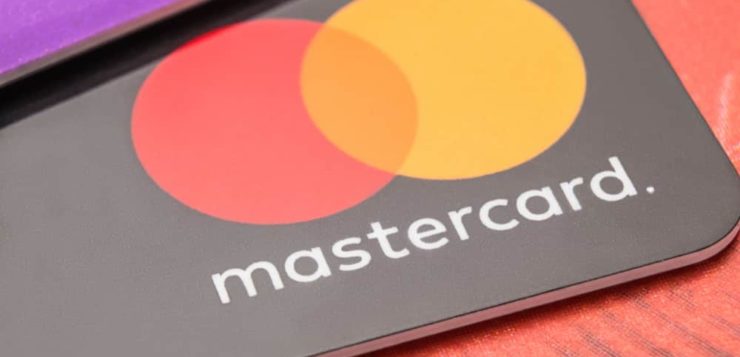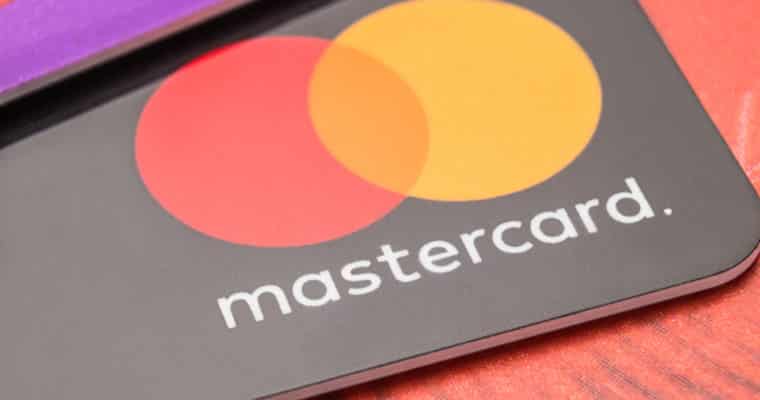Mastercard, the company who have gone through the entire process of laughing, fighting, and then embracing Bitcoin (and then attacking it again), have applied for another new patent in the blockchain space. Their last one was in regards to — we’re not making this up — a fractional reserve crypto bank. They describe a novel method of anonymizing transactions which does not, in function, represent those in place by Monero or other privacy coins.
Instead, the method described sounds a lot like coin mixing, a service that various businesses in the community have offered for years.
For those who are not aware, coin mixing (also called tumbling) is the process of taking a lot of different inputs, from senders, tumbling them together like a washing machine, and pushing out new transactions from the recipient address – thus obsfuscating the original source of the funds.
There are multiple methods of tumbling bitcoins. Mixing coins or tumbling them is no more illegal than getting change at a gas station. In neither case can you be sure that the previous holders of the units were not criminals or engaged in criminal activity. This is where the concept of fungibility is most applicable.
The Mastercard method is described as follows;
The blockchain node may receive the request and may process the transaction to transfer the specific amount from the processing server’s blockchain wallet to that of the recipient device. In some embodiments, the processing server may notify the sender device and/or the recipient device of the transfer, which may also include the providing of a transaction record identifier for the second transaction.
As a result, the sender may transfer a specific amount of digital currency to the recipient with increased anonymity, as the blockchain may reflect only that the sender sent currency to the processing server and that the recipient received currency from the processing server. When using the processing server across multiple transactions, and with multiple entities using the processing server, the true source or destination for any transaction is obscured to the point of being impossible to identify. If used for each transaction, a nefarious actor looking at the transactions for the sender 104 will only see transfers to and from the processing server, thus revealing no information about the sender’s spending habits, thus protecting the sender’s anonymity.
The above is exactly how Bitcoin mixing services work. You create a transaction on the mixer’s site, and then you tell it how much you want to send and where you want to send it. You can also specify, with most decent services, a number of “rounds” you wish to use. This means that the coins will be tumbled between wallets on the server before being sent.
The author hasn’t seen a tumblr that does the following though, where more than one wallet will be used to actually send the funds and the amounts will be changed.
In some embodiments, the processing server may utilize multiple blockchain wallets to further increase anonymity. In such embodiments, the processing server may possess a plurality of different cryptographic key pairs. […]
In some embodiments, the processing server may also anonymize transactions via the obscuring of transfer amounts. In such embodiments, the processing server may break up the second transaction (e.g., the transfer to the recipient’s blockchain wallet) into multiple transactions, where the total amounts from each of the transactions equals the specific amount being transferred to the recipient by the sender. In some cases, each of the transactions may transfer an equal amount of currency (e.g., a total transfer of 36 units of currency may be accomplished in three transactions of 12 units of currency).
It’s unclear what Mastercard intends to do with this patent. A regulated financial company, they’ll certainly not launch any products or businesses based on the model without regulatory approval, meaning that if they did such, there’d be what amount to regulated, legal Bitcoin tumblers. In the case of Mastercard-originating transactions, though, at the very least the sender’s information would have to be retained for KYC and AML laws to be respected.
Do they intend to get this patent and then enforce the patent against companies which are already doing a similar service, often with similar or higher levels of anonymity? The move raises lots of question in any cryptonaught’s mind, and CCN has reached out to Mastercard for comment as to the nature of their plans around this technology they seek to patent.
Featured image from Shutterstock.
Get Exclusive Crypto Analysis by Professional Traders and Investors on Hacked.com. Sign up now and get the first month for free. Click here.








